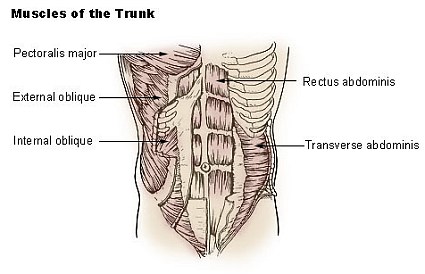I was in a park field with the kids this afternoon and getting stung by mosquitos like they had never seen me before. This got me to wondering what the first symptoms of West Nile Virus would be.
After a bit of a search around I was able to find a great faq of info from the CDC on what and how to tell if you have West Nile Virus.
Q. What are the symptoms of West Nile virus (WNV) infection?
A. Infection with WNV can be asymptomtic (no symptoms), or can lead to West Nile fever or severe West Nile disease.
It is estimated that about 20% of people who become infected with WNV will develop West Nile fever. Symptoms include fever, headache, tiredness, and body aches, occasionally with a skin rash (on the trunk of the body) and swollen lymph glands. While the illness can be as short as a few days, even healthy people have reported being sick for several weeks.
The symptoms of severe disease (also called neuroinvasive disease, such as West Nile encephalitis or meningitis or West Nile poliomyelitis) include headache, high fever, neck stiffness, stupor, disorientation, coma, tremors, convulsions, muscle weakness, and paralysis. It is estimated that approximately 1 in 150 persons infected with the West Nile virus will develop a more severe form of disease. Serious illness can occur in people of any age, however people over age 50 and some immunocompromised persons (for example, transplant patients) are at the highest risk for getting severely ill when infected with WNV.
Most people (about 4 out of 5) who are infected with West Nile virus will not develop any type of illness (an asymptomatic infection), however you cannot know ahead of time if you’ll get sick or not when infected.
Q. What is the incubation period in humans (i.e., time from infection to onset of disease symptoms) for West Nile disease?
A. Usually 2 to 15 days.
Q. How long do symptoms last?
A. Symptoms of West Nile fever will generally last a few days, although even some healthy people report having the illness last for several weeks. The symptoms of severe disease (encephalitis or meningitis) may last several weeks, although neurological effects may be permanent.
Q. What is meant by West Nile encephalitis, West Nile meningitis, West Nile poliomyelitis, “neuroinvasive disease” and West Nile fever?
A. The most severe type of disease due to a person being infected with West Nile virus is sometimes called “neuroinvasive disease,” because it affects a person’s nervous system. Specific types of neuroinvasive disease include: West Nile encephalitis, West Nile meningitis, West Nile meningoencephalitis and West Nile poliomyelitis. Encephalitis refers to an inflammation of the brain, meningitis is an inflammation of the membrane around the brain and the spinal cord, meningoencephalitis refers to inflammation of the brain and the membrane surrounding it, and poliomyelitis refers to an inflammation of the spinal cord.
West Nile Fever is another type of illness that can occur in people who become infected with the virus. It is characterized by fever, headache, tiredness, aches and sometimes rash. Although the illness can be as short as a few days, even healthy people have been sick for several weeks.
Q. If I have West Nile Fever, can it turn into West Nile encephalitis?
A. When someone is infected with West Nile virus (WNV) they will typically have one of three outcomes: No symptoms (most likely), West Nile fever (WNF in about 20% of people) or severe West Nile disease, such as meningitis or encephalitis (less than 1% of those who get infected). If you develop a high fever with severe headache, consult your health care provider.
West Nile fever is characterized by symptoms such as fever, body aches, headache and sometimes swollen lymph glands and rash. West Nile fever generally lasts only a few days, though in some cases symptoms have been reported to last longer, even up to several weeks. West Nile fever does not appear to cause any permanent health effects. There is no specific treatment for WNV infection. People with West Nile fever recover on their own, though symptoms can be relieved through various treatments (such as medication for headache and body aches, etc.).
Some people may develop a brief, WNF-like illness (early symptoms) before they develop more severe disease, though the percentage of patients in whom this occurs is not known.
Occasionally, an infected person may develop more severe disease such as “West Nile encephalitis,” “West Nile meningitis” or “West Nile meningoencephalitis.” Encephalitis refers to an inflammation of the brain, meningitis is an inflammation of the membrane around the brain and the spinal cord, and meningoencephalitis refers to inflammation of the brain and the membrane surrounding it. Although there is no treatment for WNV infection itself, the person with severe disease often needs to be hospitalized. Care may involve nursing IV fluids, respiratory support, and prevention of secondary infections.



